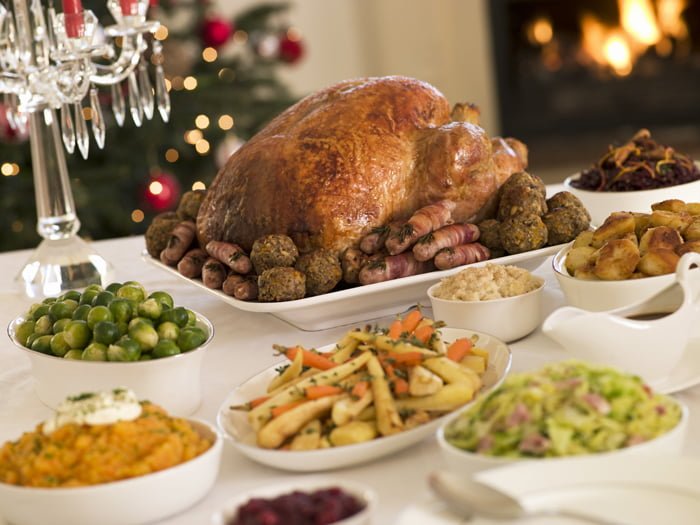There is likely to be a costly Christmas in store for catering and hospitality operators, as price rises kick in for many festive menu staples, warns buying specialist Lynx Purchasing.
Both turkey and Brussels sprouts, essential components of a traditional Christmas dinner, are forecast to see higher prices in the run-up to the festive season. Other food items, from lemon for the pre-dinner gin & tonic to cream for the Christmas pudding, are also in the inflation firing line.
“While we’re still waiting for clarity on how Brexit, in whatever form it takes, will affect the supply chain, other factors are having an impact as operators get ready for the peak trading season,” says Rachel Dobson, managing director of Lynx Purchasing. “Extreme weather, from the spring floods to the summer heatwave in Europe, has affected many crops, and there are various other challenges facing meat, seafood and dairy.”
The advice comes as Lynx Purchasing publishes the Autumn/Winter 2019 edition of its regular Market Forecast, which offers operators an in-depth look at pricing and product trends over the coming months, using exclusive data gathered from the range of suppliers who work with Lynx Purchasing.
“All in all, operators who haven’t yet secured the essentials they need for their Christmas menus may find some items in short supply,” adds Dobson. “Even where they have placed firm orders, they’re likely to have higher-than-expected bills to pay when it comes to settling up with suppliers in January.
“There is some good news. While there were concerns about the quality of the potato crop, in fact supplies are looking to be up to scratch in terms of quality, as well as good value. Most customers probably won’t object to a few more roast potatoes and not so many sprouts, but that won’t be much comfort for operators trying to manage margins across the whole menu.”
Areas highlighted in the Market Forecast include:
Turkey: Turkey prices have been higher than usual for much of the year. This was initially driven by concerns over lack of margin that prompted some farmers to switch to other types of poultry. In addition, there has been a constriction on seasonal workers needed by producers, due in part to Brexit, as well as to the improving economy in Eastern Europe.
Pork: African swine fever continues to spread in China, as well as other parts of Asia and Europe, creating high demand for unaffected supplies. Pork prices set a new record in August and are expected to rise further.
Farmed fish: Overcoming any concerns chefs have about using farmed fish is important in supporting sustainability initiatives in the hospitality sector, and farmed fresh and smoked trout is a useful and tasty alternative to salmon on Christmas menus.
Salads: Recent storms in Spain, thought to be some of the worst in over 100 years, led to some fairly extensive crop losses. Prices will remain high for the foreseeable future as growers try to ‘catch up’. The tomato is now the most expensive crop to cultivate in Spain, with reports suggesting that costs have increased by 20% in the past season.
Brassicas: Record rainfall in the spring, followed by a sustained period of record-breaking temperatures, has affected cauliflower, broccoli and cabbage harvests, and volumes of Brussels sprouts are also expected to be lower than usual as the peak season approaches.
Fruit: July’s heatwave across Europe did little to help fruit growers, with the World Apple and Pear Association forecasting that the European apple and pear crop will be significantly lower than last year. Additionally, heavy storms in some parts of Spain have caused extensive citrus crop damage.
Dairy: Increasing demand for dairy from manufacturers in the run-up to Christmas, combined with seasonally lower production, is putting upward pressure on prices. The UK imports considerable amounts of cheese and butter, and whatever the impact of Brexit, European suppliers have other markets for their products as global demand grows.
“There are fewer opportunities to use specials boards to make the best use of changing availability in the run-up to Christmas,” says Dobson, “as operators have often published menus and taken bookings well in advance. However, any flexibility that can be built into menus will help businesses make the most of the best value produce available.
“Equally, suppliers are just as concerned as operators about the ongoing political uncertainty and the resulting consumer caution, and will be grateful for any certainty they can get, so operators who can give forecasts of their potential orders to help suppliers plan will be in a stronger position when it comes to price negotiations.”
The Autumn/Winter 2019 Market Forecast is available to download free from the Lynx Purchasing website at Lynx Purchasing Market Forecast Autumn Winter 2019
Lynx Purchasing works with more than 2,200 accounts in the hospitality and catering sector, on a no-membership and no-contract basis that offers like-for-like products at lower prices and often better quality than operators could obtain by negotiating alone.
As purchasing professionals, Lynx works with leading suppliers in the hospitality and catering industry. These include specialist fresh food suppliers, wines & spirits, catering equipment providers, utilities, and specialist service providers such as telecom, business rates consultancy and waste management.
For more information on Lynx Purchasing, visit www.lynxpurchasing.co.uk call 01325 710143 or email savings@lynxpurchasing.co.uk.
